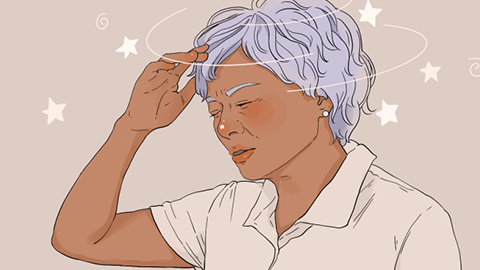What to do about poor physical strength and easy fatigue
Poor physical strength and easy fatigue may be caused by insufficient sleep, lack of exercise, iron-deficiency anemia, hypothyroidism, chronic fatigue syndrome, etc. These conditions can be improved through adjusting daily routines, regular exercise, nutritional supplementation, medication, and professional management. If symptoms persist for more than two weeks and are accompanied by other discomforts, prompt medical attention is necessary.

1. Insufficient sleep: Long-term staying up late or poor sleep quality prevents the body from fully resting and effectively restoring energy, leading to poor physical strength and easy fatigue during the day, possibly accompanied by difficulty concentrating. It is recommended to ensure 7–8 hours of sleep each night, maintain a consistent sleep schedule, avoid using electronic devices before bedtime, and create a quiet and comfortable sleeping environment.
2. Lack of exercise: Prolonged sedentary behavior weakens muscle strength, reduces cardiopulmonary function, and slows metabolism, making individuals prone to fatigue and low stamina, with symptoms becoming more noticeable after physical activity. It is recommended to engage in moderate-intensity exercises such as brisk walking, yoga, or swimming 3–5 times per week, lasting about 30 minutes each session, gradually enhancing physical endurance.
3. Iron-deficiency anemia: Inadequate iron intake or excessive iron loss leads to reduced hemoglobin synthesis and impaired oxygen transport, causing tissue hypoxia that results in fatigue and poor physical performance, often accompanied by pallor and dizziness. Patients may take medications such as ferrous succinate tablets, ferrous fumarate granules, or oral iron dextran solution under medical guidance to alleviate symptoms.
4. Hypothyroidism: Insufficient secretion of thyroid hormones slows down the body's metabolic rate and reduces energy production, resulting in poor physical strength, easy fatigue, cold intolerance, weight gain, and memory decline. It is advisable to take medications such as levothyroxine sodium tablets, thyroid tablets, or L-thyroxine sodium tablets under a doctor’s supervision to improve symptoms.
5. Chronic fatigue syndrome: Persistent mental stress and immune system dysfunction lead to unexplained fatigue lasting more than six months, which does not improve with rest, often accompanied by muscle pain and sleep disturbances. Symptoms may be managed with medications such as fluoxetine hydrochloride capsules, vitamin B1 tablets, or oryzanol tablets as prescribed by a physician.
Daily care should include a balanced diet rich in protein and vitamins; maintaining regular作息 (daily routines) and avoiding overexertion; learning stress management techniques and maintaining a positive mindset; and regularly monitoring health status to timely adjust lifestyle habits.




